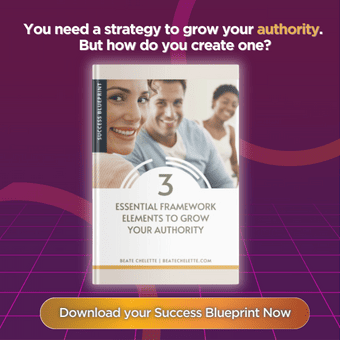If you’ve been following my posts, you know your business needs social proof. This is how buyers can verify your credibility through accolades on your website and tantalizing descriptions of your brilliance on places like Yelp, Facebook, and Google+. But there is one big mistake many businesses make that can annoy even happy customers.
As a business owner, you need to coax customers into sharing their (hopefully positive) experiences through customer surveys. While asking for feedback is a great idea in theory, here is how it can go wrong.
In the course of a fairly average couple of weeks, I was engaged with a number of businesses. I had my car serviced at the dealership and they gave me a loaner vehicle. I visited my doctor for a routine checkup. And, I worked with a few freelancers through Upwork to help me with a business project.
Then it began…
First came the innocent follow-up phone call from the car dealership asking me if the service was satisfactory. I said it was. But because there is a scoring system within all the company’s dealerships, the polite lady firmly recommended that I follow the customer survey link she was about to send me. Ping! Here is the email in addition to the phone call. Just when I thought I was done with the dealership, someone from loaner division called and wanted to know if my loaner was satisfactory and—Ping!—there’s a survey for that, too.
I got a phone call from my HMO (health care provider) in the form of an automated and completely useless message telling me all the benefits of using their online portal. Imagine receiving a call with “an important message” after having a mammogram only to be told that you can fill your prescriptions online! Then, when I picked up my mail I had a 4-page survey from the same HMO asking me to help them improve their service. It was very thorough (i.e. time consuming) with questions about everything from my check-in (as if I would remember) to the follow-up I received after the appointment.
As for my freelancers, Upwork sent me several reminders asking me to leave feedback for people I’ve hired. And after I provided that feedback, one of the freelancers (who I was not happy with) then contacted me directly to find out if there was additional feedback on my earlier feedback. Seriously?
Normally, I don’t mind at all helping a business out with good feedback when it’s deserved. But when bombarded, it can feel like survey Armageddon. The big mistake made by all these businesses is they asked for too much of my time.
Here are 5 survey guidelines that will get you the best possible feedback:
- Get clear on what area you really need feedback about and only ask for that.
- Never ask more than 3-5 questions and make sure they are to the point.
- Don’t require extra steps. Use the phone, email, or website link, but not a combination of all three.
- If asking for a testimonial, include three positive examples.
- Never ask what you can improve because your customer will find something to tell you. Instead, ask: “What was your favorite experience?” Hide that negative response in the “Is there anything else we should know” question.
Surprisingly, the happy customers are the ones you rarely hear from, which is why you should go after their input the most.
As for the unhappy customers? In my experience you do not need to worry about them—they WILL tell you anyway. Focus only on the positive in your customer survey. It’s better for business.
At her lowest point, Beate Chelette was $135,000 in debt, a single mother, and forced to leave her home. Only 18 months later, she sold her image licensing business to Bill Gates in a multimillion dollar deal. Chelette is a nationally known ‘gender decoder’ who has appeared in over 60 radio shows, respected speaker, career coach, consummate creative entrepreneur, and author of Happy Woman Happy World. Beate is also the founder of The Women’s Code, a unique guide to women leadership and personal and career success that offers a new code of conduct for today’s business, private, and digital worlds. Determined to build a community of women supporting each other, she took her life-changing formula documented it all in a book Brian Tracy calls “an amazing handbook for every woman who wants health, happiness, love and success!”
Through her corporate initiative “Why Acting Like a Girl Is Good For Business” she helps companies with gender diversification training, and to develop and retain women.
If you’d like to book Beate as a speaker on New Leadership Balance or Creative Entrepreneurship for your next event please connect with me.






Hear hear!
What I ask customers includes just a few simple questions. The most important one? “What really ‘wowed’ you in the Experience”. This teaches me a lot, and it generates wonderful quotable references!
PS main web site redone. Rest in progress. You rock, Beate (and you can quote me on that).